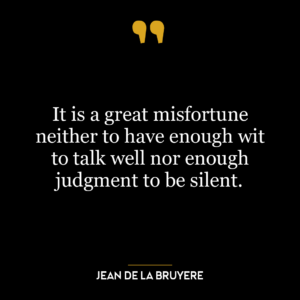This quote conveys the idea that minor or insignificant troubles are often expressed, discussed, or complained about openly, while profound pain or suffering tends to be borne in silence. The ‘trifling troubles’ can be seen as the everyday annoyances or minor setbacks that we face, which we often vent about to others. On the other hand, ‘deeply felt pangs’ refer to the profound grief, pain, or suffering that we experience, which we often keep to ourselves, either because they are too painful to express or because we fear that others might not understand or trivialize them.
In essence, the quote emphasizes the human tendency to express superficial problems while suppressing deeper, more significant emotional pain. This could be due to various reasons, including societal norms that discourage the expression of deep emotional pain, fear of vulnerability, or the belief that others might not empathize with or understand our pain.
In the context of personal development, this quote highlights the importance of addressing our deeply felt pangs instead of suppressing them. It encourages us to confront our profound emotional pain, as this is a crucial step towards healing and personal growth.
In today’s world, this idea is particularly relevant. In an era where social media often portrays an idealized version of life, people may feel pressured to hide their deep emotional pain while emphasizing trivial troubles. However, this can lead to feelings of isolation and exacerbate mental health issues. Therefore, it is more important than ever to create spaces where people feel safe expressing their deeply felt pangs, and to foster a culture of understanding and empathy.












